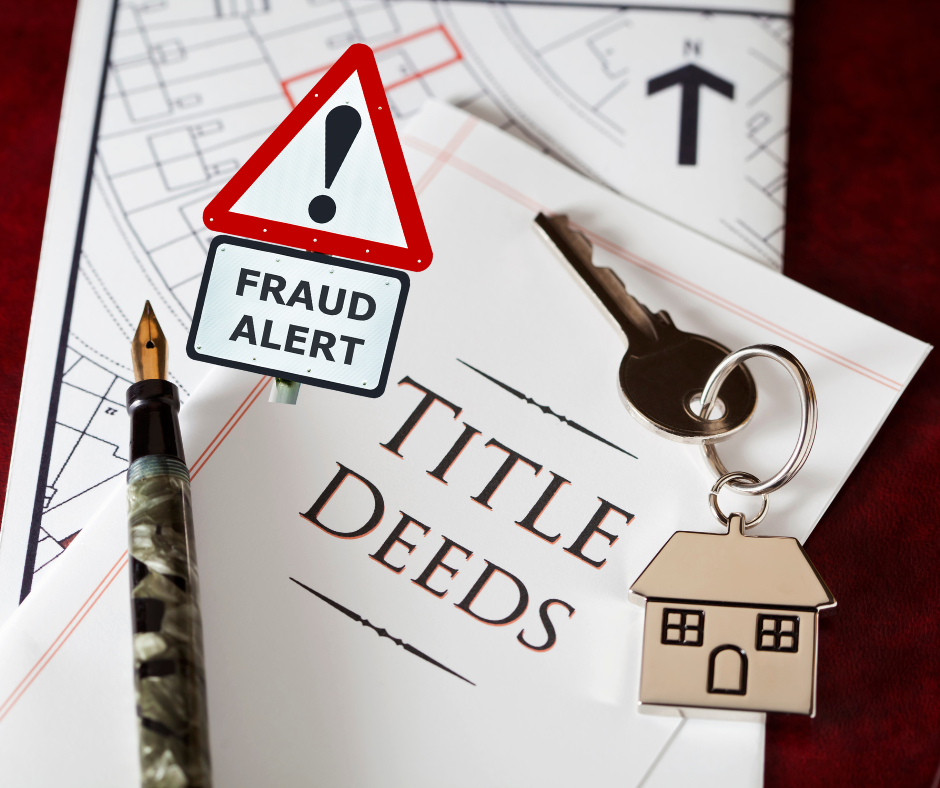Real Estate Scams in Kenya
Despite Kenya’s growing real estate market, property scams remain a serious threat to buyers, investors, and diaspora Kenyans. In 2025, fraudsters continue to exploit demand, digital platforms, and weak verification systems to sell fake land, impersonate owners, and run off with deposits.
But with the right knowledge, you can spot red flags, verify legitimacy, and avoid becoming a victim.
🚩 Top Real Estate Scams in Kenya (2025)
1. Fake Title Deeds & Land Grabbing
- How It Works: Scammers use forged or duplicated title deeds to sell land they don’t own.
- Common in: Ruiru, Ruaka, Athi River, and rural areas
- Red Flags:
- No verification on Ardhisasa
- Title not in seller’s name
- Seller refuses to conduct a land search
Real Case: A buyer paid KSh 1.5M for a Ruiru plot—only to find the real owner had never sold it.
2. Unlicensed Agents & Fake Developers
- How It Works: Fraudsters pose as agents or developers, take deposits, and disappear.
- Tactics:
- No ISK license
- No physical office
- Pressure to pay cash or via M-Pesa to personal numbers
- Red Flags:
- No verifiable company website
- Social media pages created recently
- No NEMA or county approval
Tip: Always verify agents on www.isk.or.ke

3. Double Selling (Selling One Plot to Multiple Buyers)
- How It Works: A developer or agent sells the same plot to 2–3 buyers.
- How It Happens:
- Off-plan projects with no physical demarcation
- No transparent buyer registry
- Red Flag:
- Other buyers show up at the site claiming ownership
Protection: Always visit the site, confirm plot number, and get a site plan with your name.
4. Impersonation of Landowners
- How It Works: A fraudster pretends to be the owner—using a fake ID or claiming to be a relative.
- Common in: Inheritance disputes or absentee owners
- Red Flag:
- Seller cannot produce original ID or KRA PIN
- Refuses to involve a licensed advocate
Solution: Hire an LSK-registered lawyer to verify identity and ownership.
5. Unapproved Developments (Ghost Estates)
- How It Works: Builders sell plots in estates without NEMA or county approval.
- Risk:
- No title deeds issued
- Government can demolish the project
- No water, roads, or electricity
Real Case: An estate in Kitengela was shut down after 3 years—buyers lost KSh 80M+.

6. Diaspora Targeting via WhatsApp & Zoom
- How It Works: Scammers target Kenyans abroad with:
- Fake live video tours
- Forged M-Pesa receipts
- “Urgent” offers to pressure payment
- Red Flags:
- No site visit possible
- Payments to personal numbers (not Paybill)
- No advocate involvement
Protection: Use a trusted local representative to inspect and verify.
🔍 How to Spot a Real Estate Scam
| ❌ No ISK-licensed agent | Verify atwww.isk.or.ke |
| ❌ No NEMA Certificate | Ask for EIA approval |
| ❌ No County Permit | Check with local government |
| ❌ Cash-only or M-Pesa to personal number | Only pay to official Paybill numbers |
| ❌ Pressure to pay quickly | Walk away—legit deals don’t rush |
| ❌ No land search | Never skip due diligence |
✅ How to Protect Yourself
- Use a Licensed Advocate (LSK)
- Conduct a land search at the Ministry of Lands
- Verify ownership, boundaries, and encumbrances
- Work with ISK-Registered Agents
- Confirm license number and active status
- Verify Project Approvals
- Check for NEMA EIA, county development permit, and subdivision approval
- Visit the Site in Person
- Confirm plot location, access, and demarcation
- Pay via Traceable Methods
- Use M-Pesa Paybill, bank transfer, or escrow—never cash to individuals
- Get Everything in Writing
- Signed sale agreement, receipt, and site plan
- Use Ardhisasa for Online Verification
- e-citizen → Ardhisasa for land searches and title checks

💡 Real Stories: Lessons from Victims
“I paid KSh 200K via M-Pesa after a WhatsApp tour. The agent vanished. No office, no title.”
— Diaspora buyer, USA
Lesson: Never pay without verification.
“The plot I bought had no water or road. The developer disappeared after collecting deposits.”
— Investor, Nairobi
Lesson: Confirm NEMA and county approvals.
FAQs
Q: Are real estate scams common in Kenya?
A: Yes—especially in fast-selling areas like Ruiru, Ruaka, and Athi River. Always verify before paying.
Q: How can I verify a land title in Kenya?
A: Use Ardhisasa on e-citizen or hire an LSK-registered advocate to conduct a land search.
Q: Can I get my money back if scammed?
A: It’s difficult. Report to police, DCI, or Ethics and Anti-Corruption Commission (EACC)—but recovery is rare.
Q: Is it safe to buy property via WhatsApp?
A: Only if you:
- Verify the agent (ISK)
- Confirm title (LSK advocate)
- Pay to official channels (Paybill)
- Inspect the site

